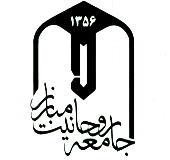
The People's Mojahedin Organization of Iran (PMOI), also known as Mojahedin-e-Khalq (MEK) or Mojahedin-e-Khalq Organization (MKO), is an Iranian dissident organization that was previously armed but has now transitioned primarily into a political group. Its headquarters are currently in Albania. The group's ideology is rooted in "Islam with revolutionary Marxism", and offered a revolutionary reinterpretation of Shia Islam influenced by the writings of Ali Shariati. After the Iranian Revolution, the MEK opposed the new theocratic Government of the Islamic Republic of Iran, seeking to replace it with its own government. At one point the MEK was Iran's "largest and most active armed dissident group", and it is still sometimes presented by Western political backers as a major Iranian opposition group.

The Iranian revolution, also known as the 1979 revolution, or the Islamic revolution of 1979 was a series of events that culminated in the overthrow of the Pahlavi dynasty in 1979. The revolution led to the replacement of the Imperial State of Iran by the present-day Islamic Republic of Iran, as the monarchical government of Mohammad Reza Pahlavi was superseded by the theocratic Ayatollah Ruhollah Khomeini, a religious cleric who had headed one of the rebel factions. The ousting of Pahlavi, the last Shah of Iran, formally marked the end of Iran's historical monarchy.

Mohammad-Ali Rajai was an Iranian politician who served as the second president of Iran from 2 August 1981 until his assassination four weeks later. Before his presidency, Rajai had served as prime minister under Abolhassan Banisadr, while concurrently occupying the position of foreign affairs minister from 11 March 1981 to 15 August 1981. He died in a bombing on 30 August 1981 along with then-prime minister Mohammad-Javad Bahonar.

Liberalism in Iran or Iranian liberalism is a political ideology that traces its beginnings to the 20th century.

Party of the Iranian Nation is "a small opposition" party in Iran advocating establishment of a secular democracy. Although the party is technically illegal, it still operates inside Iran.
The Green Party of Iran is a Green political party dissident to Iran's Islamic Republic government.

The Pan-Iranist Party is an opposition political party in Iran that advocates pan-Iranism. The party is not registered and is technically banned, however it continues to operate inside Iran.

The Islamic Republican Party was formed in 1979 to assist the Iranian Revolution and Ayatollah Khomeini in their goal to establish theocracy in Iran. It was disbanded in 1987 due to internal conflicts.

The Combatant Clergy Association is a politically active group in Iran, but not a political party in the traditional sense.
The Organization of Iranian People's Fadaian (Majority) (Persian: سازمان فدائیان خلق ایران (اکثریت), romanized: Sāzmān-e fedaiyān-e khalq-e Irān (aksariat); lit. 'Organization of self-sacrificers of the people of Iran') is an Iranian left-wing opposition political party in exile. The OIPFM advocates for an Iranian secular republic and the overthrow the current Islamic Republic of Iran government.

The Freedom Movement of Iran (FMI) or Liberation Movement of Iran is an Iranian pro-democracy political organization founded in 1961, by members describing themselves as "Muslims, Iranians, Constitutionalists and Mossadeghists". It is the oldest party still active in Iran and has been described as a "semi-opposition" or "loyal opposition" party. It has also been described as a "religious nationalist party".
The Muslim People's Republic Party (MPRP) or Islamic People's Republican Party was a short-lived party associated with Shia Islamic cleric Shariatmadari. It was founded in 1979 during the Iranian Revolution as a "moderate, more liberal counterweight" to the theocratic, Islamist Islamic Republican Party (IRP) of Ayatollah Ruhollah Khomeini, and disbanded in 1980.
Following the Iranian revolution, which overthrew the Shah of Iran, in February 1979, Iran was in a "revolutionary crisis mode" from this time until 1982 or 1983 when forces loyal to the revolution's leader, Ayatollah Ruhollah Khomeini, consolidated power. During this period, Iran's economy and the apparatus of government collapsed; its military and security forces were in disarray.

Mojahedin of the Islamic Revolution Organization was an umbrella political organization in Iran, founded in 1979 by unification of seven underground Islamist revolutionary paramilitary and civil organizations which previously fought against the Pahlavi monarchy.
JAMA is an Iranian political party founded in 1964. The party which was mainly active between 1979 and 1981 and a junior partner in the Cabinet of Bazargan, had been outlawed throughout much of its history due to dissenting the rule of both Pahlavi dynasty and the Islamic Republic.
Politics in the Islamic Republic of Iran are dictated by factionalism. All political parties were banned in the Islamic Republic in 1987. Today, several political factions encapsulate the political landscape in the Persian country, and scholars such as Maziar Behrooz, Behzad Nabavi, Bahman Baktiari, Maaike Warnaar, Payam Mohseni, have given different formulations of them, varying in number and orientation.

Socialism in Iran or Iranian socialism is a political ideology that traces its beginnings to the 20th century and encompasses various political parties in the country. Iran experienced a short Third World Socialism period at the zenith of the Tudeh Party after the abdication of Reza Shah and his replacement by his son, Mohammad Reza Pahlavi. After failing to reach power, this form of third world socialism was replaced by Mosaddegh's populist, non-aligned Iranian nationalism of the National Front party as the main anti-monarchy force in Iran, reaching power (1949–1953), and it remained with that strength even in opposition until the rise of Islamism and the Iranian Revolution. The Tudehs have moved towards basic socialist communism since then.
The Great Islamic Coalition or the Coalition of Islamic Parties was an electoral alliance of organizations led by Islamic Republican Party, competing in 1979 Iranian Constitutional Convention election. It was the largest coalition in the elections, and used its influence on media, Islamic Revolution Committees and the mosques to oust their opponents, most importantly the Quintuple Coalition of radical Islamic groups.

The Turkmen People's Cultural and Political Society, also known as the Turkmensahra Councils Central Headquarters, was a Marxist-Leninist and ethnic insurgent group based in Gonbad-e Kavus, Iran.
The Religious–Nationalists or the National–Religious are terms referring to a political faction in Iran that consists of individuals and groups embracing Iranian nationalism and Islam, as an integral part of their manifesto. They self-identify as political followers of Mohammad Mosaddegh and their modernist religious outlook makes them advocates of coexistence of Islam and democracy, an idea distinguishable from those of ideologies such as Pan-Islamism or Islamism.











